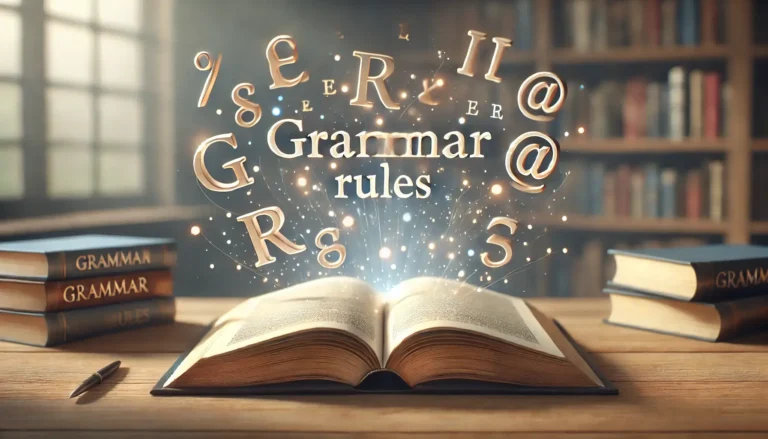Understanding the functions of nouns in sentences is crucial for mastering English grammar. Nouns serve various roles, from being the subject of a sentence to acting as objects and complements. In this guide, we’ll explore the different noun functions in sentences and provide examples to help clarify each role.
1. Nouns as the Subject of a Sentence
One of the primary functions of nouns is to act as the subject of a sentence. The subject is typically a noun or noun phrase that tells us who or what is performing the action. Without a subject, a sentence lacks direction.
- Example: “Kaemba studies English every day.”
- Example: “The dog barks loudly.”
In both examples, the nouns “Kaemba” and “dog” are performing the actions “studies” and “barks,” respectively. Here, they fulfill the role of the subject in the sentence, showcasing one of the main noun functions.
2. Nouns as Objects of the Sentence
Nouns also serve important roles as objects in sentences, acting either as direct or indirect objects. Let’s explore both of these noun functions:
- Direct Object: A direct object is a noun that receives the action of the verb.
- Example: “I saw the cat.”
In this example, “cat” is the direct object because it is the thing being seen.
- Indirect Object: An indirect object indicates to whom or for whom the action is performed.
- Example: “She gave Kaemba a gift.”
Here, “Kaemba” is the indirect object because the gift is given to her, while “gift” is the direct object receiving the action.
3. Nouns as Subject and Object Complements
Another important noun function in sentences is serving as a complement. A complement renames or provides additional information about the subject or object, adding clarity to the sentence.
- Example: “She became a doctor.”
- Example: “The winner is a champion.”
In the first example, “doctor” renames who “she” became, and in the second, “champion” provides more information about the “winner.” This role of nouns as complements adds depth to the sentence and is another vital function of nouns.
4. Nouns and Articles
Articles such as “the,” “a,” and “an” often accompany nouns to define whether they are specific or general. Articles clarify the functions of nouns by showing if the noun refers to something known or unknown.
- Definite Article (the): Used with specific nouns.
- Example: “The car I bought is new.”
- Example: “The dog outside is barking.”
In both cases, “the” is used because the nouns “car” and “dog” are specific to both the speaker and the listener.
- Indefinite Articles (a, an): Used when referring to non-specific nouns.
- Example: “I saw a movie last night.”
- Example: “She found an apple on the ground.”
Here, “a” and “an” are used because the movie and apple are not specific, showing another way that articles help define noun functions in sentences.
5. Modifiers of Nouns
Nouns often appear with modifiers that provide additional information about them, further refining their functions in sentences.
- Adjectives: Adjectives describe nouns by adding details like color, size, or number.
- Example: “The blue sky was beautiful.”
- Example: “I ate a big sandwich.”
In these examples, “blue” and “big” are adjectives that describe the nouns “sky” and “sandwich,” showcasing how adjectives modify and enhance noun functions.
- Noun Phrases: A noun phrase includes a noun and its modifiers.
- Example: “The old, dusty book was on the table.”
“Old” and “dusty” modify the noun “book,” forming a noun phrase and enriching the overall sentence.
- Appositives: Appositives are nouns or noun phrases that rename or explain another noun.
- Example: “My friend, a talented musician, is visiting next week.”
“A talented musician” is an appositive, explaining who “my friend” is, thus adding more information to the sentence.
Conclusion
Mastering the functions of nouns in sentences can greatly improve both writing and comprehension skills. Nouns serve as subjects, objects, complements, and can be modified by adjectives, phrases, and appositives.
By understanding these noun functions, you can create more precise and expressive sentences. Whether you’re learning English grammar or refining your language skills, knowing how nouns operate will elevate your writing and communication abilities.
Did this guide help you better understand the functions of nouns in sentences? Have any questions or examples to share? Drop your thoughts in the comments below – we’d love to hear from you!







